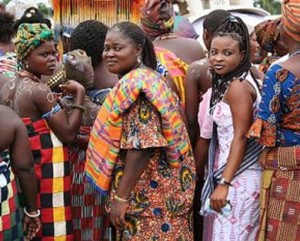Women-led households escaping poverty than men-led households – Research
 More women-led households are escaping poverty than their men counterparts across all regions in Ghana, a research spanning a 13-year period (2006 to 2019) has found.
More women-led households are escaping poverty than their men counterparts across all regions in Ghana, a research spanning a 13-year period (2006 to 2019) has found.
The research findings, made known at a dissemination workshop in Accra, attributed the situation to the support systems that women receive, including remittances and targeted aid from advocate groups and financial institutions.
The research was carried out by Professor Bernardin Senadza, Associate Professor, Department of Economics, University of Ghana, Dr Dede Gafa, Lecturer, African School of Economics, Benin, and Mr Louis Hodey, Researcher, Institute of Development Studies, University of Sussex, United Kingdom.
“These are females who are heading households usually because there’s the absence of a male partner, making them independent. So, their productive use of time comes at play, and there have been several interventions all targeting women when it comes to poverty reduction,” Mr Hodey said.
The support included the 31st December Women’s Movement, and others from Non-Governmental Organisations (NGOs) and financial institutions, all designed specifically to uplift women from poverty, he explained.
“All these come together to help women-headed households easily escape poverty compared to their male-headed households,” Mr Hodey added.
Between 2006 and 2019, the study period, “we were seeing a gap, where households escaping poverty are women-led, while men-led households are being trapped in poverty,” the Researcher stressed.
He called for an all-round approach to tackling poverty reduction and elimination, saying that: “There are poor men and poor women. Therefore, you cannot neglect poor men and keep targeting poor women. ”
“If you belonged to a household headed by a man, there is a higher probability of poverty persistence, but there is a greater chance of escape if you belonged to a household headed by a woman,” Prof Senadza also said.
“That is not to say that women are not doing well. Women, perhaps as we know, are able to better manage resources to improve the wellbeing of their dependents,” he added.
Dr Dede Gafa also said that: “Female-headed households tend to receive remittance from probably a male partner who works outside the town or sends money to the house.”
The researchers recommended the need to provide equal access to development opportunities for all because having policy options for females whilst leaving out males would, over time would create a lopsided-society.
The research sought to understand how people moved into and out of poverty based on existing datasets from 2006 to 2019, namely: Ghana Living Standard Surveys (GLSS) – 2005/06 to 2016/17 and EGC-ISSER Ghana Socioeconomic Panel Surveys – 2009/10 to 2018/19.
Source: GNA
